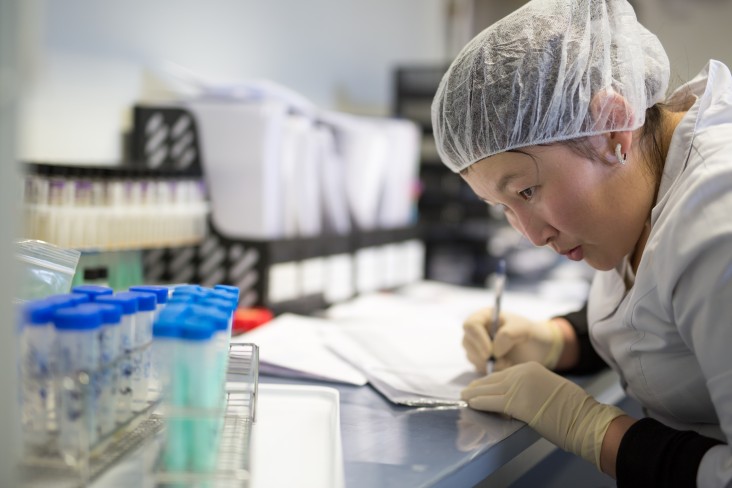
Duration: 2014-2019
Implementing Partner: The Program is implemented by a consortium led by Abt Associates,Inc
Budget: $14,230,120
Key Partner: Ministry of Health of Kyrgyz Republic
Activity Locations: Countrywide
USAID’s Defeat TB Project is a five-year endeavor designed to reduce the burden of tuberculosis in the Kyrgyz Republic. Its implementation limits the development of drug-resistant strains of the disease, supports equitable access to quality health care for vulnerable groups, and strengthens the national healthcare system.
Defeating tuberculosis (TB) in the Kyrgyz Republic is an ambitious and complex undertaking, requiring appropriate laws, up-to-date healthcare regulations, efficient financing, trained healthcare workers, adequate diagnostic systems, appropriate administration of TB medicines, and community support for patients. Abt Associates and its partners, FHI 360 and RPX, are committed to supporting Kyrgyzstan’s National Tuberculosis Program under the Ministry of Health in its efforts to defeat the disease.
MAJOR FOCUS AREAS
- Improve general access to quality TB care and services, such as diagnosis and treatment.
- Strengthen the capacity of healthcare service providers to deliver on their mandate, including supporting the modernization of laboratories.
- Improve the quality of data pertaining to TB, as well as how this data is used.
EXPECTED IMPACT AND RESULTS
- Trained more than 3,500 doctors, nurses, lab workers, and other healthcare workers on improved TB care.
- Supported a move away from hospitalization of all TB patients towards internationally recommended outpatient treatment. The number of patients receiving outpatient treatment in pilot sites increased by 78 percent over the first two years of the Project.
- Assisted the Kyrgyz government to adopt a national Road Map to restructure TB control, prevention, and treatment systems, which will make TB care more effective and efficient. The resulting $2 million in annual savings will be used to improve infrastructure and buy medicine.
- Introduced an electronic financial information management system to support timely and transparent payments to providers. This system is now being rolled out to include the entire health sector.
- Introduced a new biomaterial transportation system that enables patients to get more accurate test results more quickly, and start their treatment sooner.
- Reached more than 50,000 households in areas with large migrant populations to raise TB awareness, reduce TB stigma, encourage testing among those with TB symptoms, and support TB patients with treatment. Around 2,400 people from vulnerable groups with TB symptoms have been tested, with nearly 112 cases confirmed. Over 1,600 patients, including 663 with drug-resistant TB, received support with the long and often difficult treatment.
- Opened the country’s first TB shelter, which provides housing and treatment support to vulnerable patients.
- Assisted healthcare facilities to correctly use GeneXpert, which reduces TB diagnosis from weeks to two hours and provides drug sensitivity information for proper treatment. Supported the roll-out of the GxAlert system to collect and disseminate real-time results and data from GeneXpert operations.
- Introduced a video teleconference system for expert TB committees (Consilliums), reducing the review time of complex TB cases from a few weeks to a few days.
- Established a Quality Management System in laboratories which reduced the laboratory turnaround time from 7 days to just 3.
- Reached nearly one million people with messages about TB through health-focused sermons delivered at 1,770 mosques across the country.
- Introducing a new patient-centered treatment approach in which family, friends, or other community members can serve as community-based treatment supporters to help TB patients complete their treatment closer to home.
Related Links







Comment
Make a general inquiry or suggest an improvement.